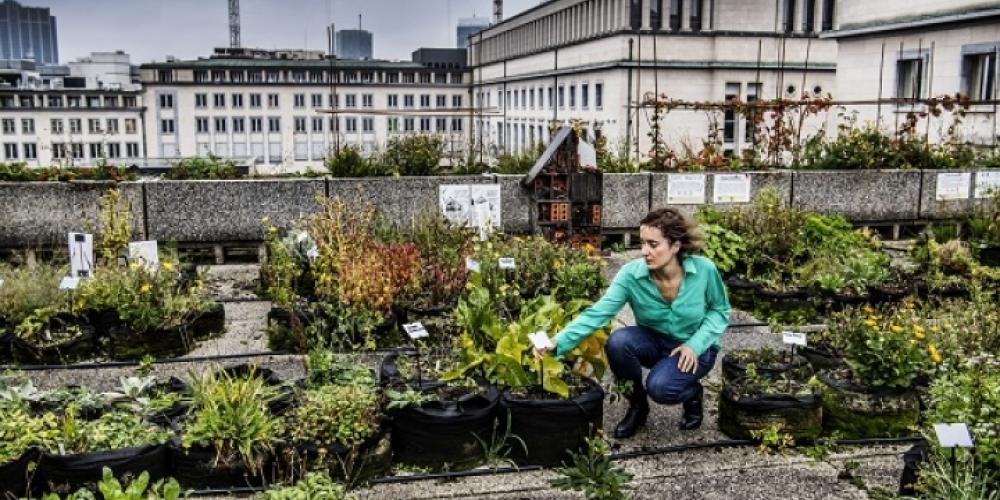
“To be honest, it is a coincidence that I ended up in Belgium,” Alessandra says. “I studied Urban Planning at the polytechnical university of Milan and was given the opportunity to go abroad with the Erasmus exchange program. KU Leuven was still available and I knew they had a good urban planning department. And so my choice was made rather quickly.”
Had you decided beforehand to turn Brussels into your study object?
“Upon coming to Belgium, I had indeed already started work on my master thesis on urban gardening in Brussels. But I was still very curious to the way of working here. I wanted to establish if there was a difference in the working environment in Milan and elsewhere. And I have to say that there are in fact differences. I think that in Brussels and Belgium as a PhD researcher you are supported and acknowledged more. I also have the feeling that it is easier to obtain research funding here. Now, I don’t want to generalise too much. After all, I am doing my doctoral research in Belgium and not in Italy, so I cannot really make a comparison.”
After your master thesis you also chose Brussels as the subject of your PhD. Why?
That was self-evident really. Through my master thesis I got to know numerous urban gardening initiatives in Brussels. So I wasn’t totally unprepared. But what also appealed to me, was that Brussels is a very challenging environment. For example there is significant pressure on the available land. Plus there is the interesting link between Brussels and its hinterland, and the complex relationship with Flanders. Furthermore we can say there is major political and administrative fragmentation. I wondered how small-scale initiatives that I was familiar with could survive in this complicated constellation. How do they relate to the government? How can the Brussels region support these projects that start bottom-up, from the citizens upward, so that they can thrive and have an impact in the long run? All of that makes it a very interesting study object.
So you study how urban gardening initiatives that spontaneously arise can organise themselves?
Yes, that is correct. But I also want to assist them through my research and investigate how they can establish better relationships between producers and consumers. Among other things I study how they can better promote their activities to local food producers.
In the meantime you live in Brussels. Do you like it?
Absolutely. I live in Schaarbeek, so not far from VUB at all, and also the residence of Bas Van Heur, who together with Frank Moelaert of KU Leuven is the supervisor of my joint PhD. So that is definitely a bonus. Brussels has a good scale, I find. It is easy to get about, by bike of public transport. There are also surprisingly many things to discover, like various micro-activities in the different quartiers. I have for example really enjoyed Parckfarm, a people’s park by Thurn & Taxis where the ecological, city farming, the social, the multicultural and the local converge. Time will tell whether the initiative, that I came into contact with through my research, will continue to exist. I certainly hope so.
Find out more about Manganelli's research.